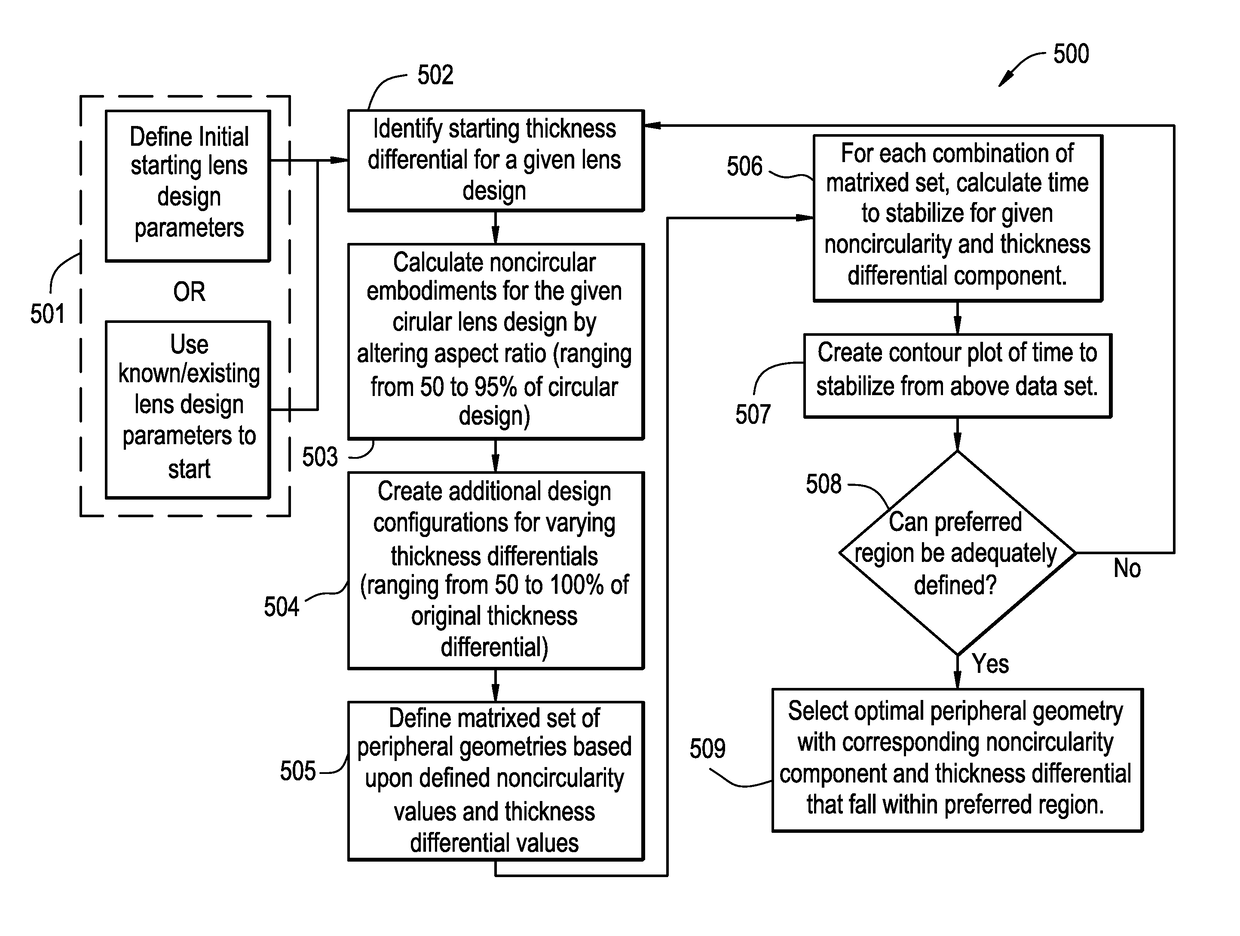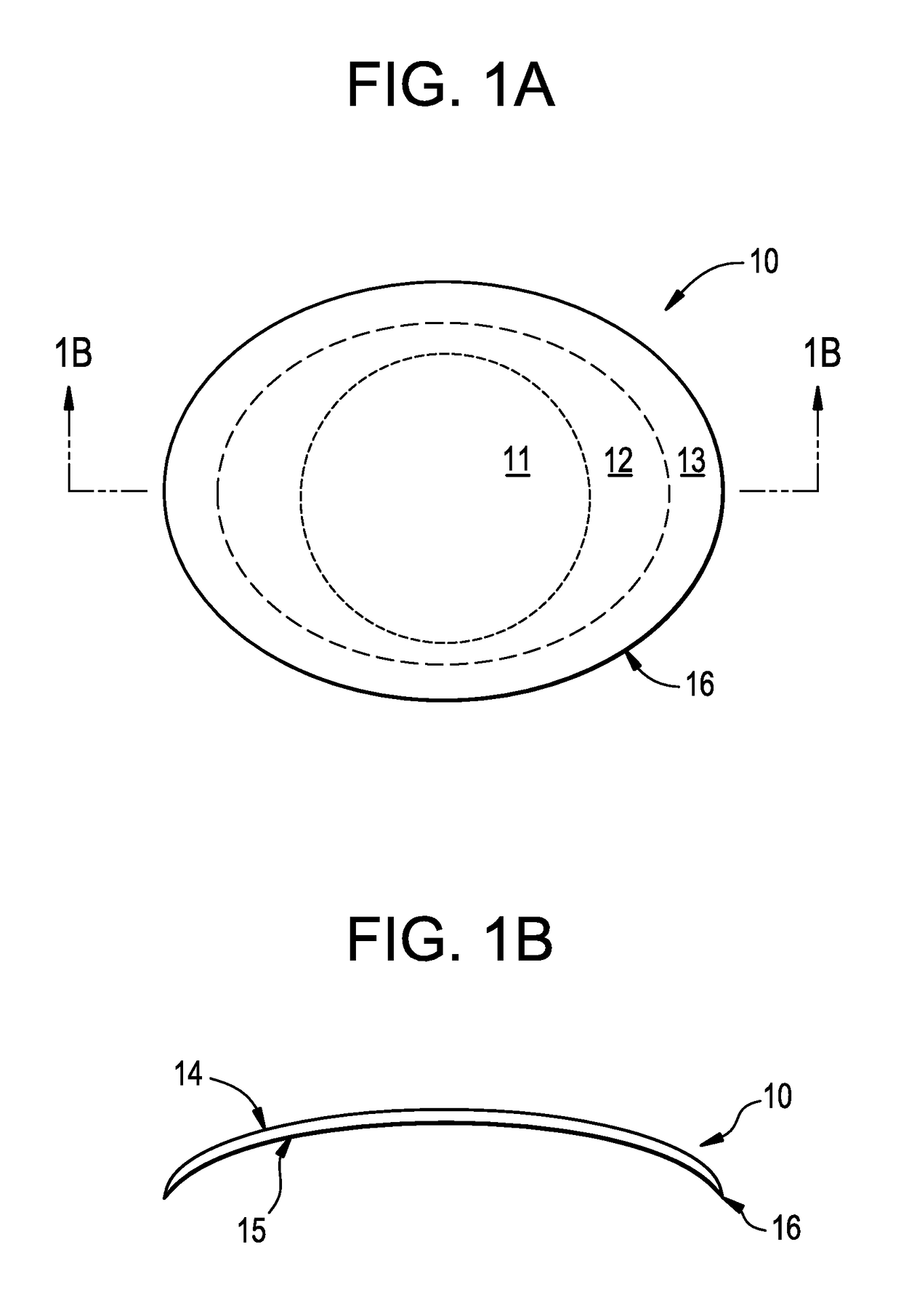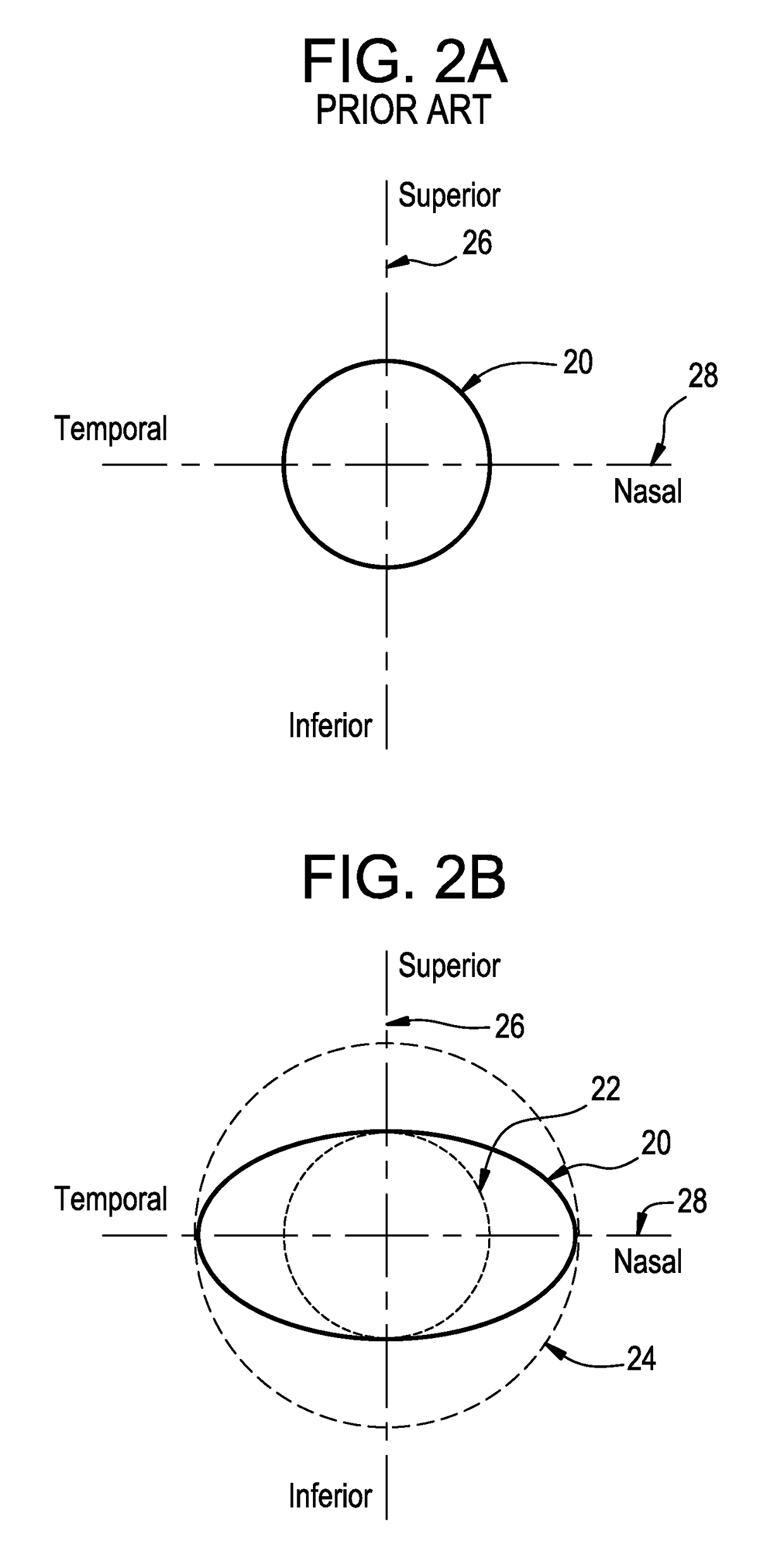Rotationally stabilized contact lens with improved comfort and method of optimization
a contact lens and rotational stabilizer technology, applied in the field of contact lenses, can solve the problems of negative impact on the stabilization effect, increased manufacturing difficulty and cost, increased comfort expense, etc., and achieve the effect of improving eye performance and high degree of comfor
- Summary
- Abstract
- Description
- Claims
- Application Information
AI Technical Summary
Benefits of technology
Problems solved by technology
Method used
Image
Examples
Embodiment Construction
[0023]For purposes of the present invention a contact lens 10 as shown in FIG. 1A is defined by at least two distinct regions. The inner region 11 from which the vision correction is obtained and the outer peripheral region 13 of the contact lens 10 that provides mechanical stability of the contact lens 10 on eye. A third optional intermediate region 12 located between the inner region 11 and the outer region 13 can be utilized for blending the two aforementioned regions in a smooth manner such that abrupt discontinuities do not occur. In some exemplary embodiments the intermediate region 12, may not be required.
[0024]The inner region 11 or optical zone provides vision correction and is designed for a specific need such as single vision correction, astigmatism vision correction, bi-focal vision correction, multi-focal vision correction, custom correction or any other design that may provide vision correction. The outer periphery or peripheral zone 13 provides for basic fit and stabi...
PUM
 Login to View More
Login to View More Abstract
Description
Claims
Application Information
 Login to View More
Login to View More - R&D
- Intellectual Property
- Life Sciences
- Materials
- Tech Scout
- Unparalleled Data Quality
- Higher Quality Content
- 60% Fewer Hallucinations
Browse by: Latest US Patents, China's latest patents, Technical Efficacy Thesaurus, Application Domain, Technology Topic, Popular Technical Reports.
© 2025 PatSnap. All rights reserved.Legal|Privacy policy|Modern Slavery Act Transparency Statement|Sitemap|About US| Contact US: help@patsnap.com



